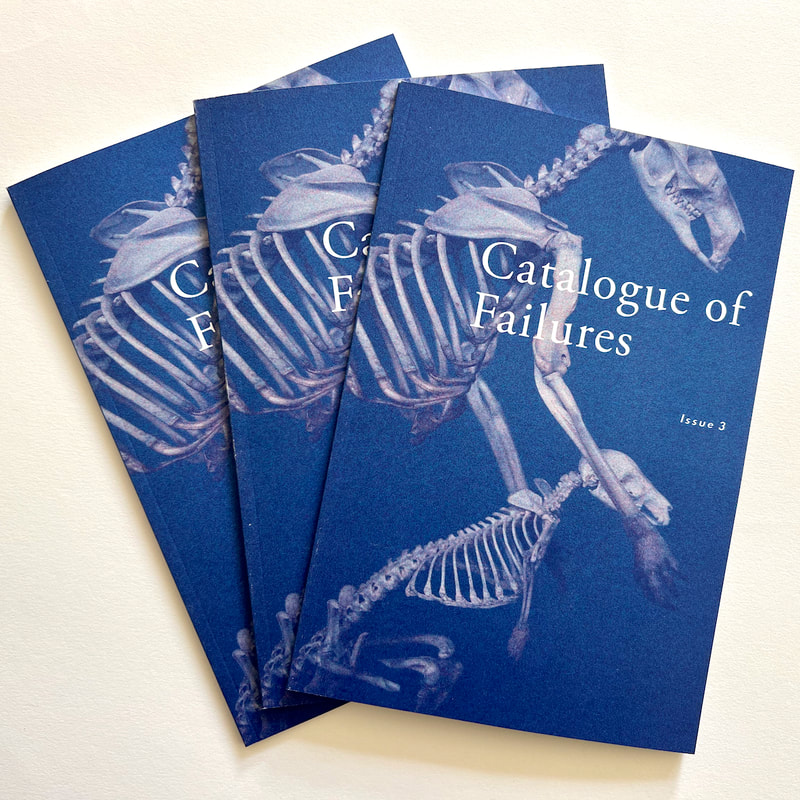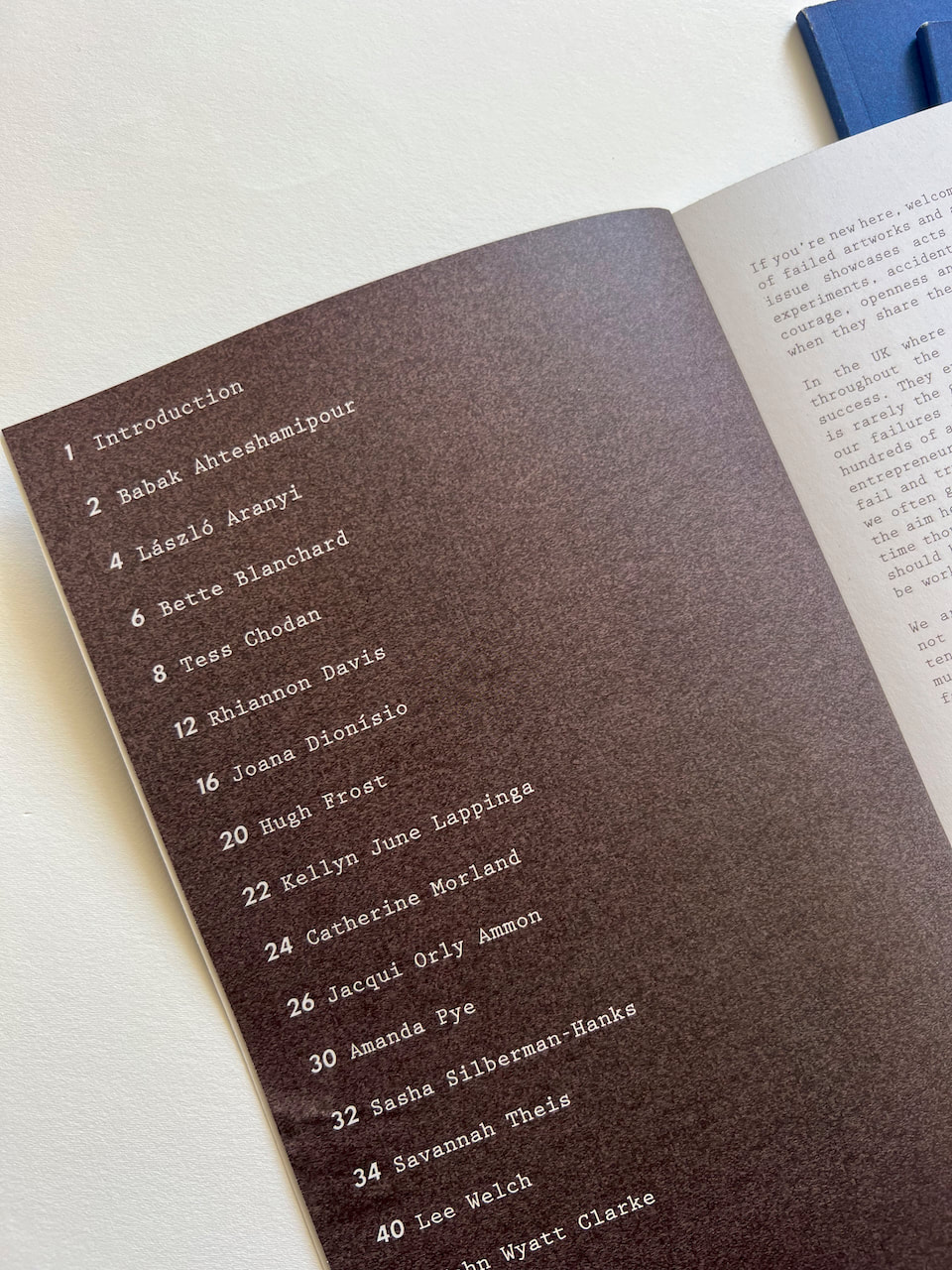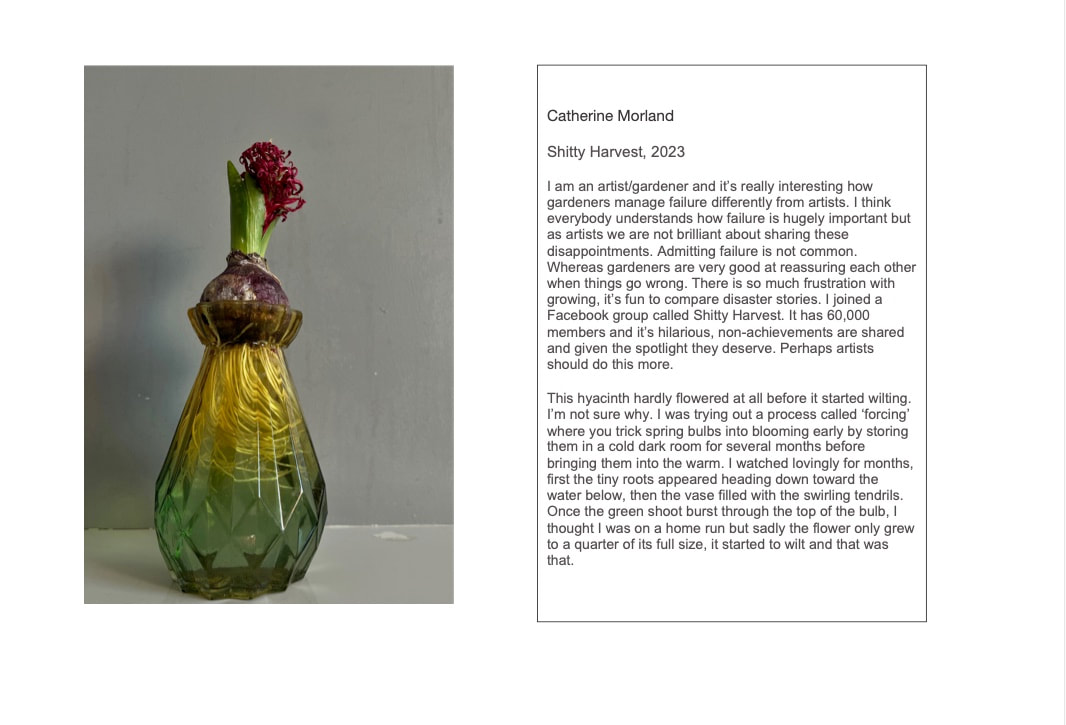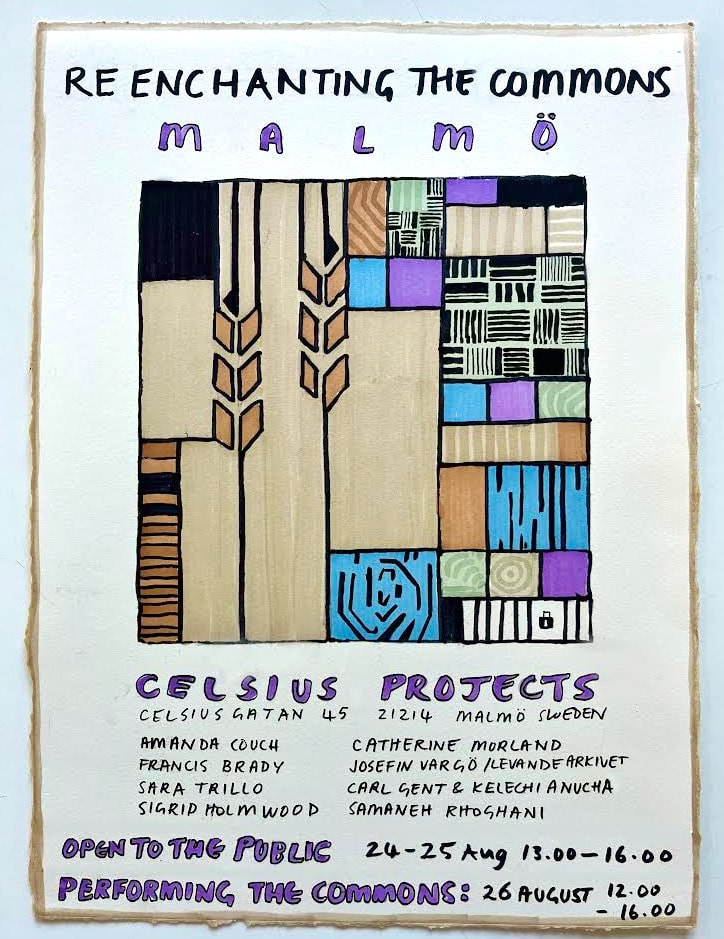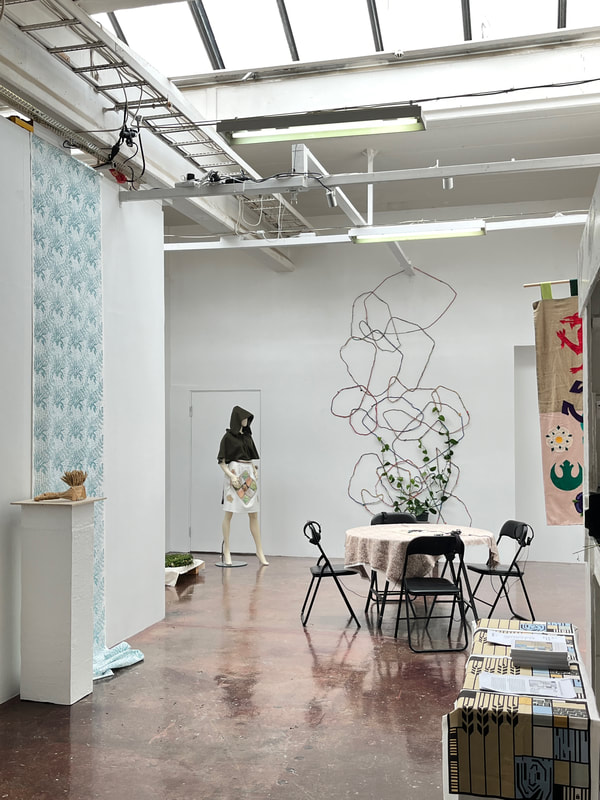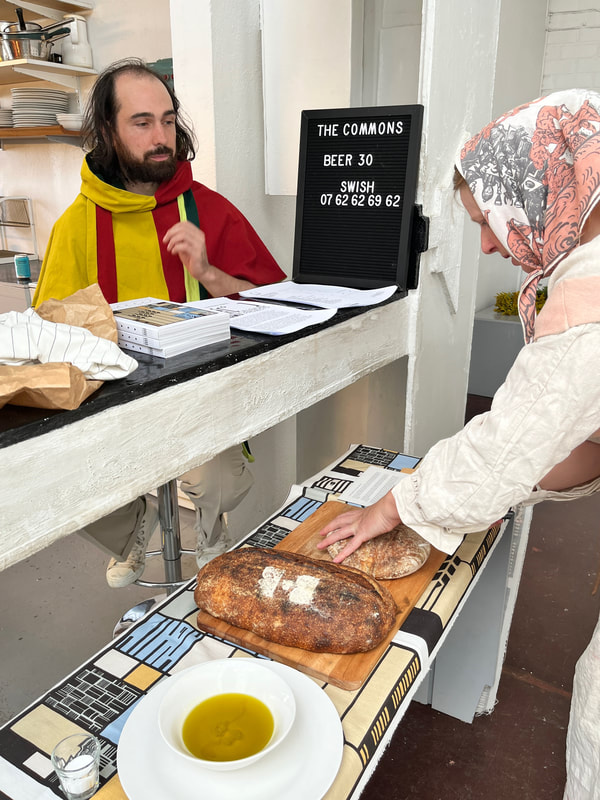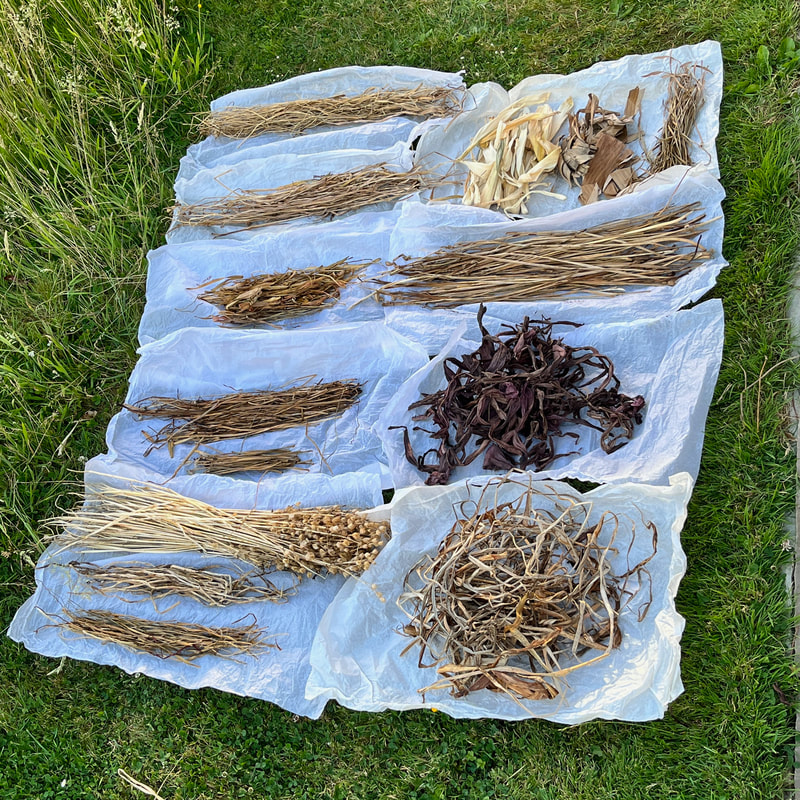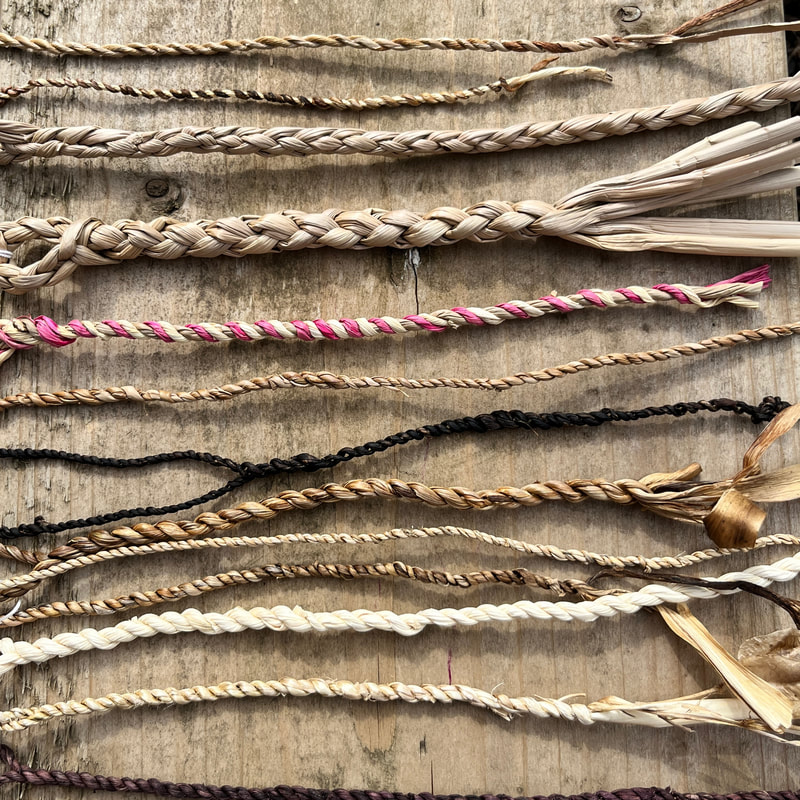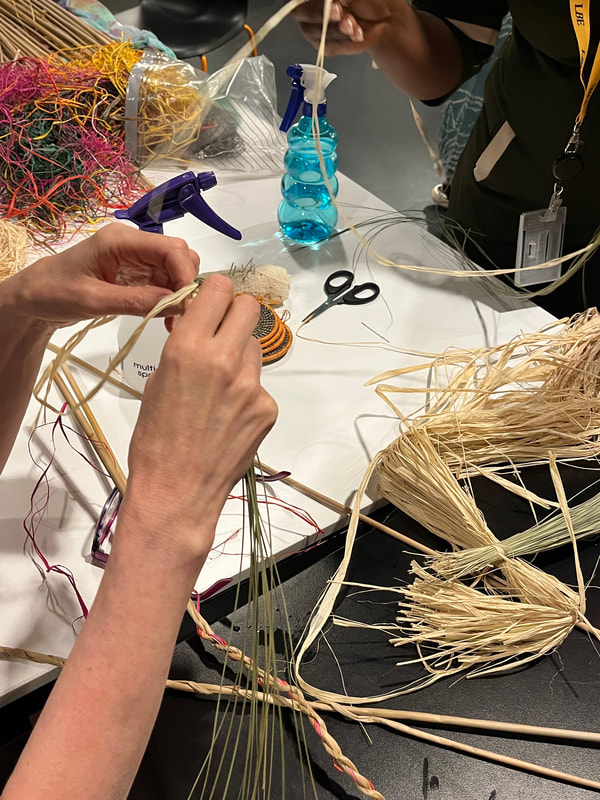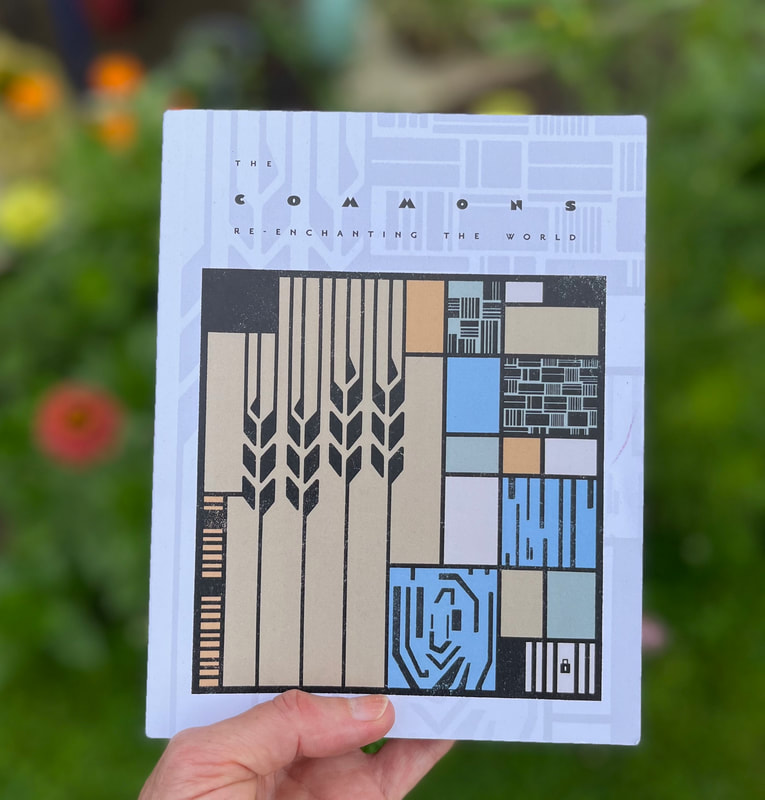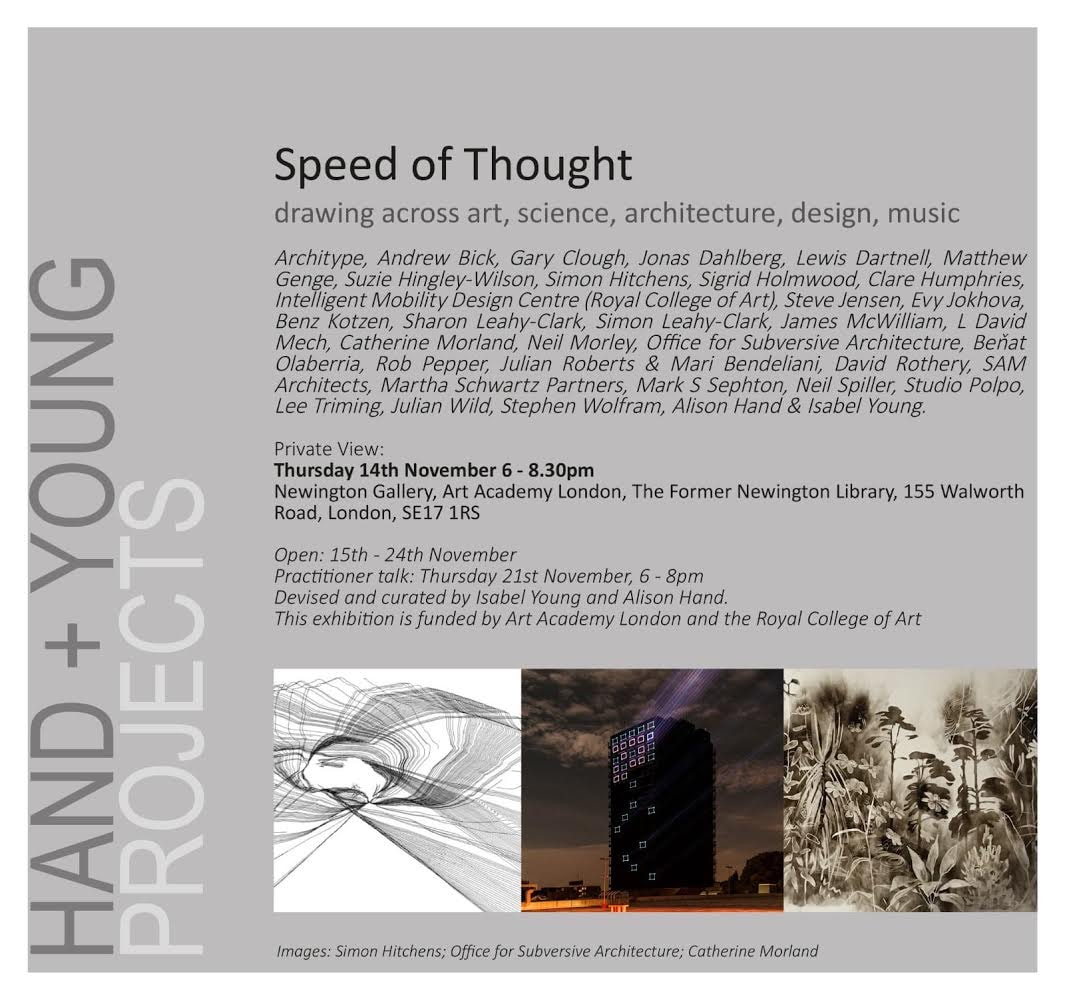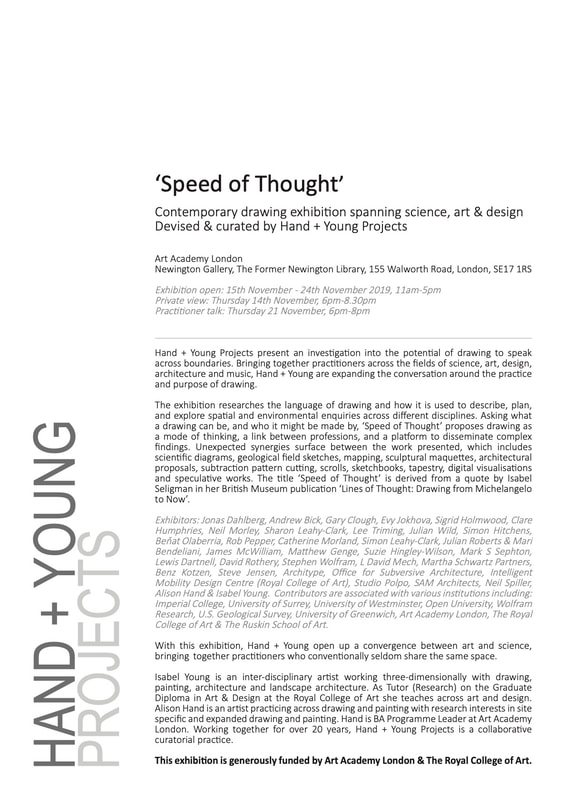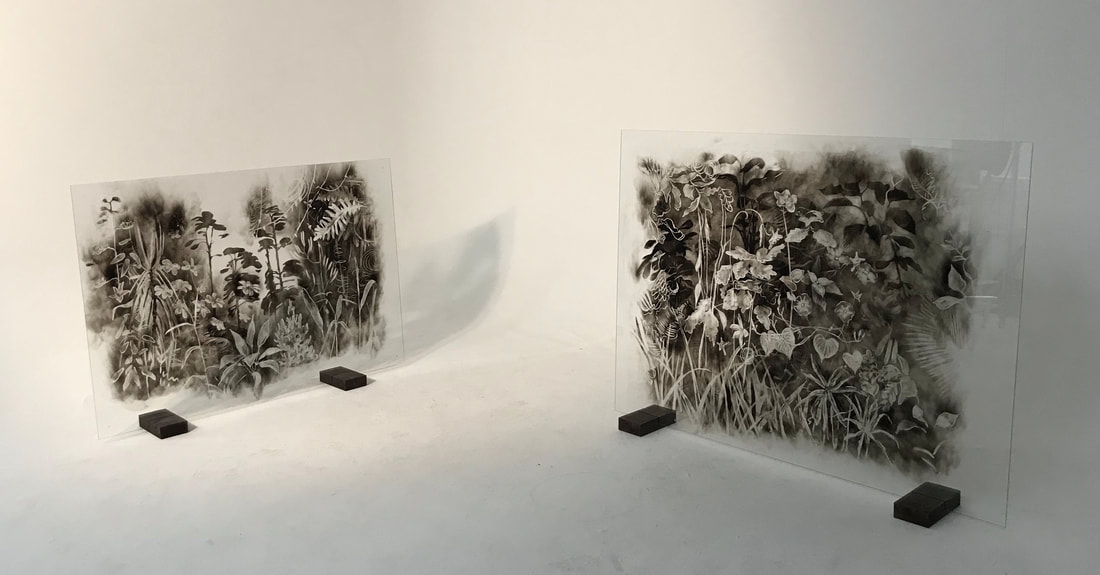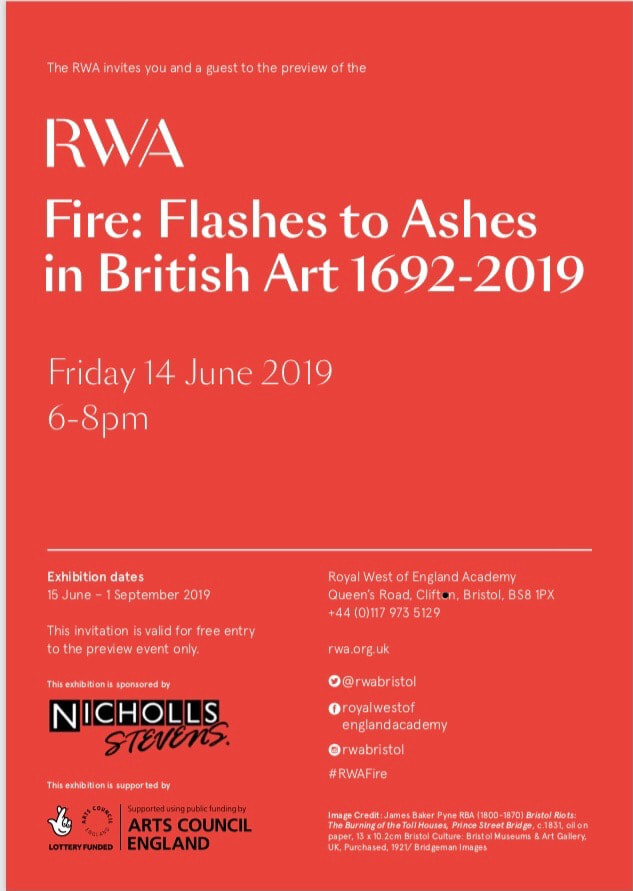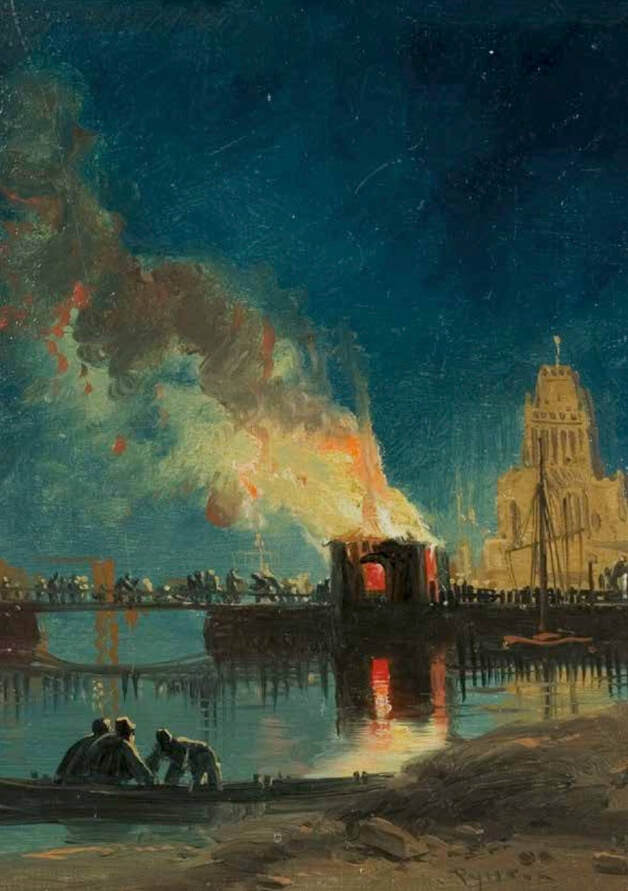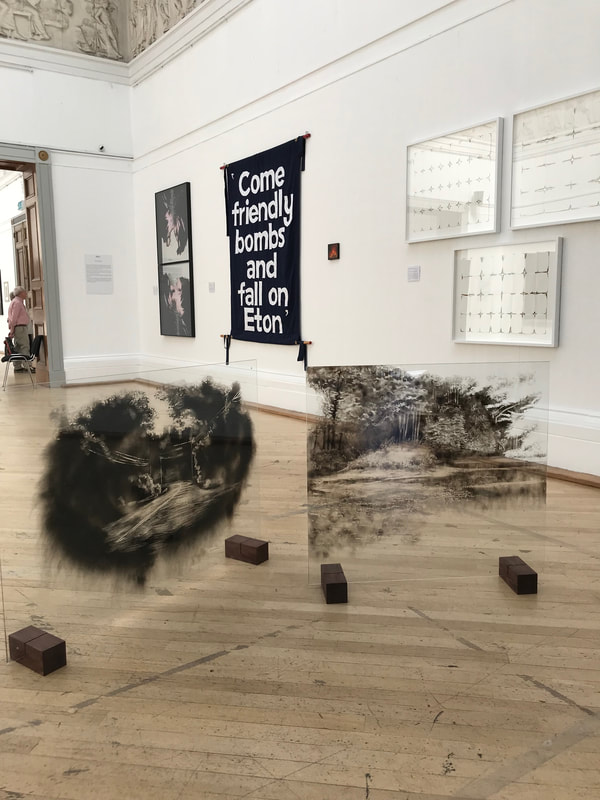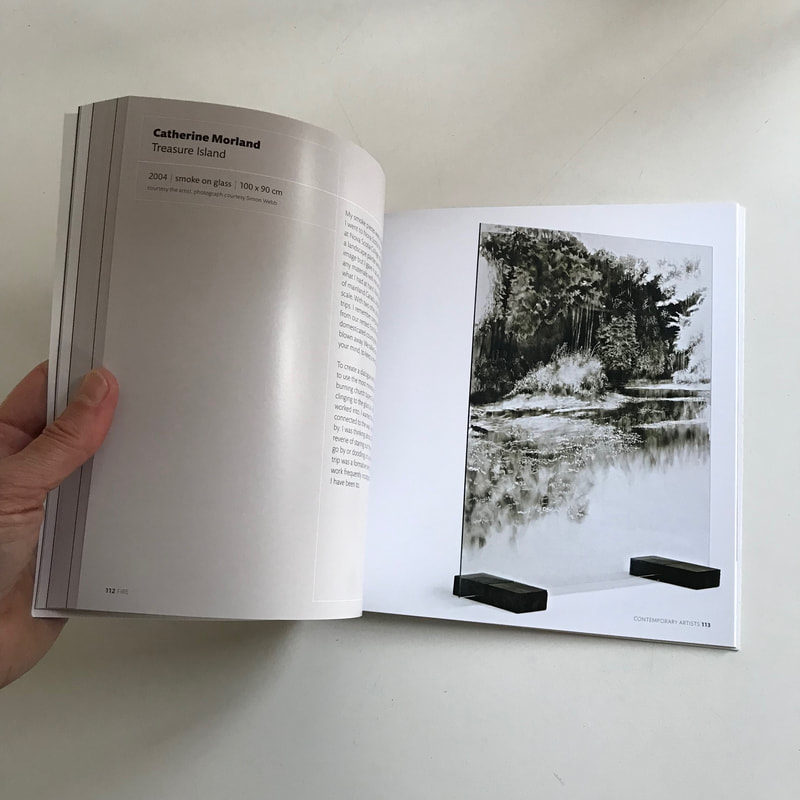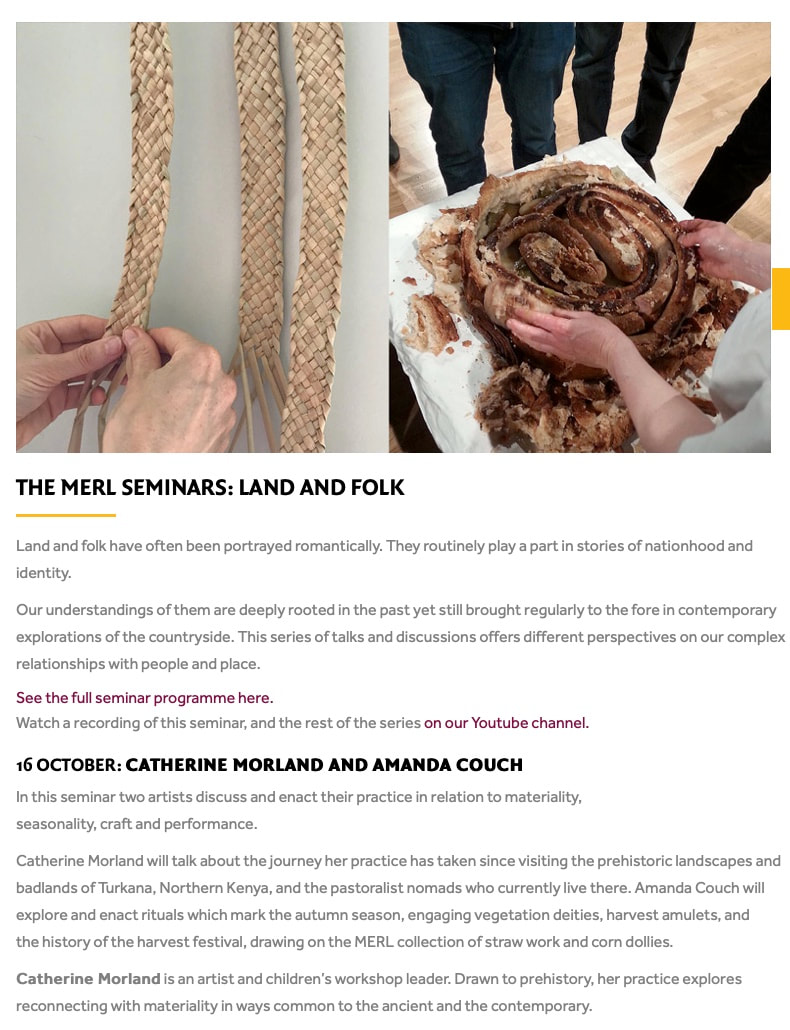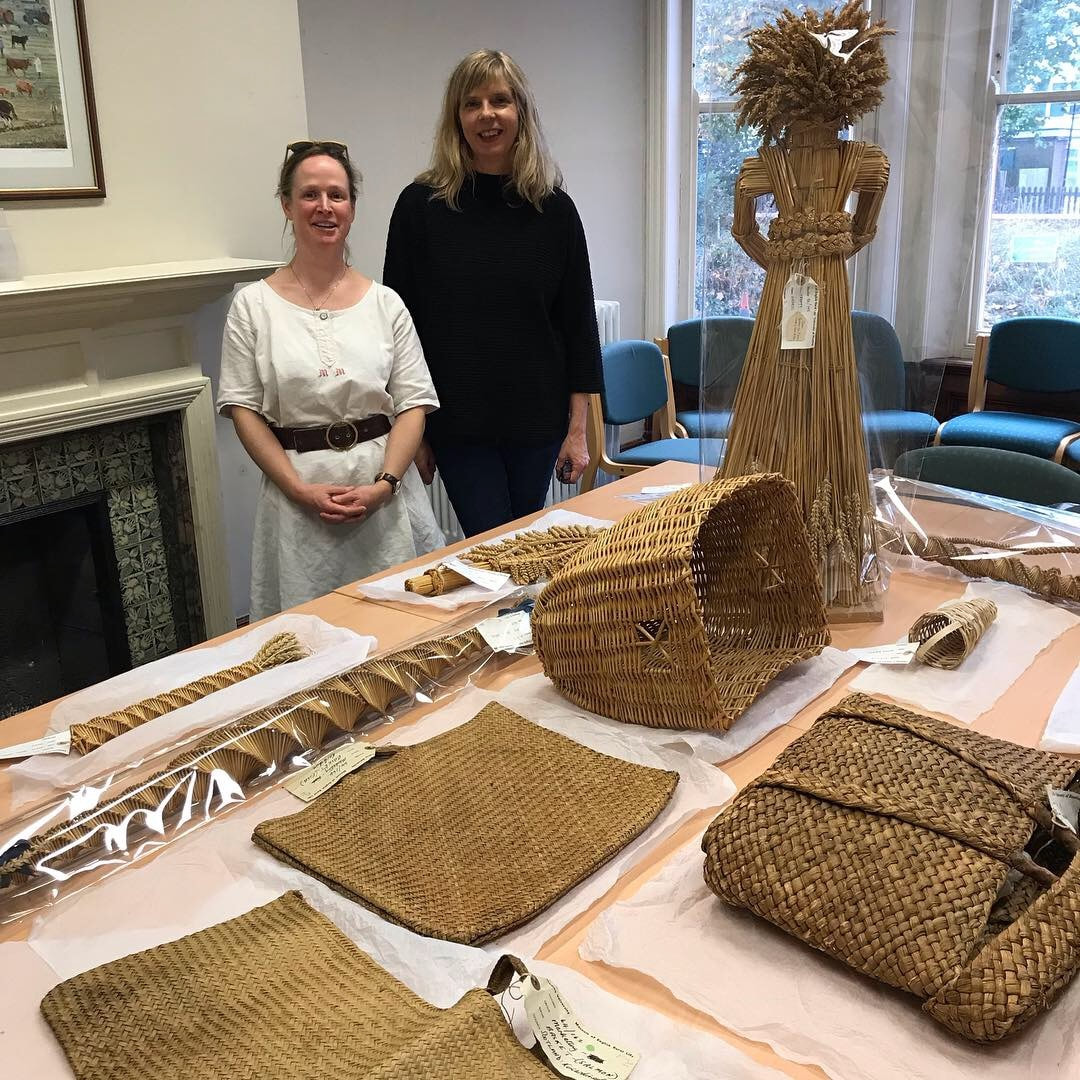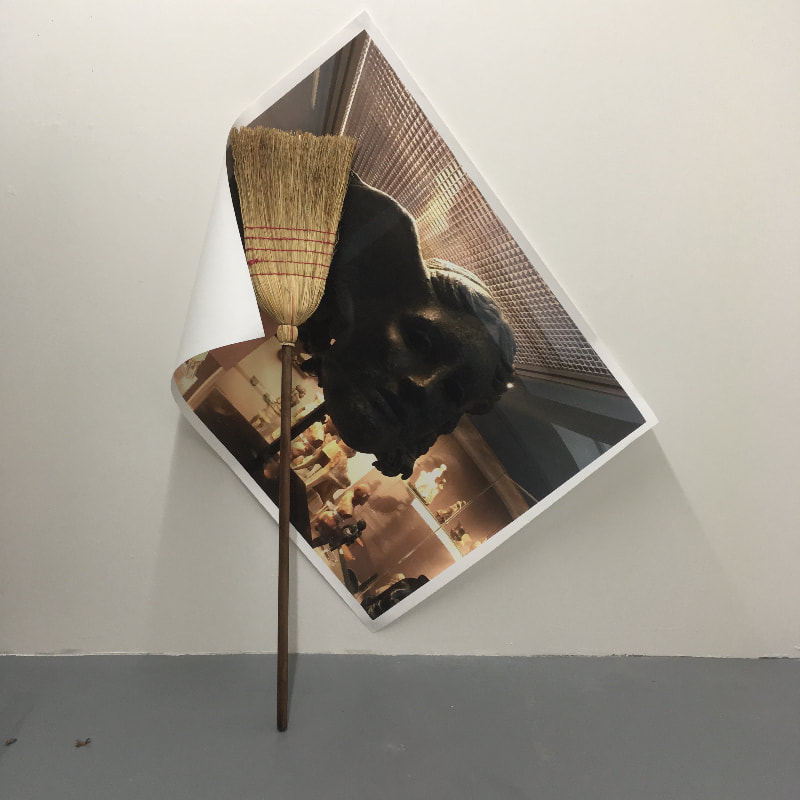This short project brings artists and work from a project about the ‘commons’ undertaken at the Museum of English Rural Life, in Reading, UK between 2020 to 2022. The idea of ‘the commons’ has a particular history in England, and areas of British colonialism, such as Australia and the United States. Originally referring to land which ‘commoners’ were allowed to use in restricted ways, e.g. for grazing and gathering firewood, it has more recently become a political concept used to protest the appropriation of natural resources for private exploitation. Re-situating this project in the Swedish context opens up other histories and practices of commoning. On the Saturday 26th of August 2023 Celsius projects invited the public to explore these ideas further through with Performing the Commons with performances by Francis Brady, Sigrid Holmwood and Catherine Morland.
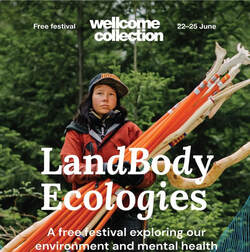
June 22-25th 2023
Wellcome Collection
"While in the forest, which we call our ancestral home/
land, we had the liberty to access anything we wanted
for free, like collecting wild honey, feeding on wild
meat, wild Yams and fruits and accessing herbal
medicine whenever someone would get sick."
' - Sylvia Kokunda
On 23 June, 2-3pm, we will run the workshop "Weaving
Land and Health". Audiences are invited to join artists
and weavers @catmorland, @sheilaghelani and
@sylviakokunda (@abeg_uganda) to weave using
raffia, grass and other materials. Together we will
consider where the materials for these cultural
practices come from, and in what ways we are rock,
soil, water or air.
To see the full festival programme and book your
tickets (free) for this and other events, visit the
@WellcomeCollection website
Wellcome Collection
"While in the forest, which we call our ancestral home/
land, we had the liberty to access anything we wanted
for free, like collecting wild honey, feeding on wild
meat, wild Yams and fruits and accessing herbal
medicine whenever someone would get sick."
' - Sylvia Kokunda
On 23 June, 2-3pm, we will run the workshop "Weaving
Land and Health". Audiences are invited to join artists
and weavers @catmorland, @sheilaghelani and
@sylviakokunda (@abeg_uganda) to weave using
raffia, grass and other materials. Together we will
consider where the materials for these cultural
practices come from, and in what ways we are rock,
soil, water or air.
To see the full festival programme and book your
tickets (free) for this and other events, visit the
@WellcomeCollection website
The Commons: Re-Enchanting the World, edited by C. Morland and & A. Couch, designed by K. Fraser (2022) Purchase the Publication
THE COMMONS: RE-ENCHANTING THE WORLD
SIX ARTISTS RESPOND TO THE COMMONS at THE MUSEUM OF ENGLISH RURAL LIFE IN READING
JAN 2020- APRIL 2022
CURATED BY CATHERINE MORLAND AND AMANDA COUCH
SIX ARTISTS RESPOND TO THE COMMONS at THE MUSEUM OF ENGLISH RURAL LIFE IN READING
JAN 2020- APRIL 2022
CURATED BY CATHERINE MORLAND AND AMANDA COUCH
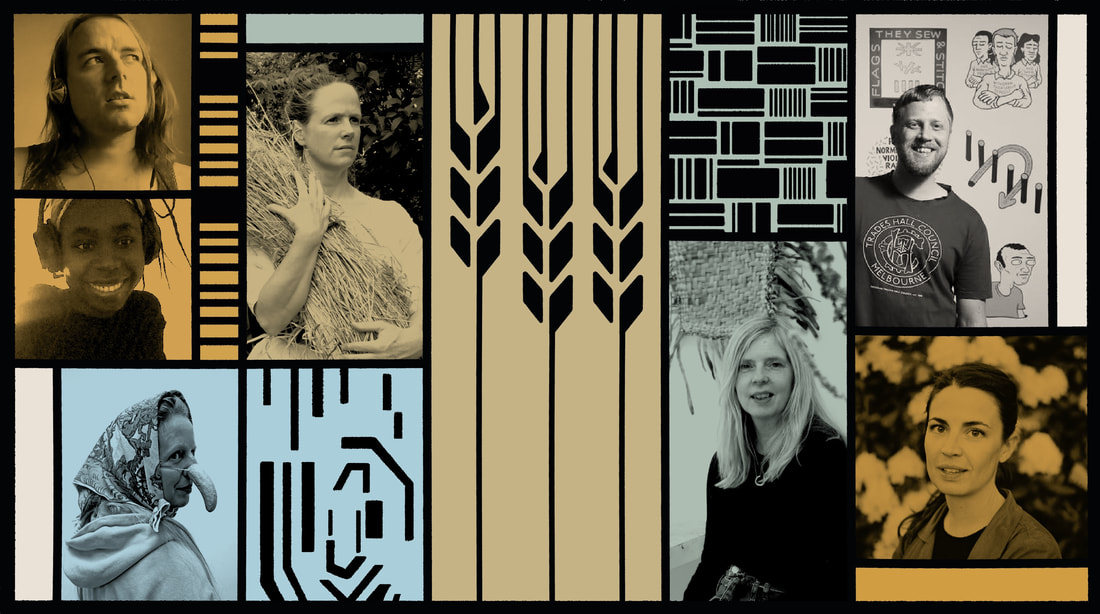
THE COMMONS: RE-ENCHANTING THE WORLD A NEW INSTALLATION IN THE MERL GALLERIES…
The commons defines the natural capital that we all share: land, air, and water. It is a reciprocal social system that cares for and preserves these resources. It relies on relationships of shared knowledge and creativity, which bind us together with more-than-human processes, forces, and resources.
When the commons are enclosed, eroded, or made inaccessible, the effects are devastating. It leads to grave ecological changes and brings about the decline of communal life and subsistence living. In turn, this can impact environment, lifestyle, labour, gender rights, and the wage economy. Rural histories of enclosure provide a link between the commons and The MERL. Private ownership played a critical role in early capitalism and colonial expansion. Damage stemming from these processes has radiated around the world and into our future.
Six artists with responses to the commons have made installations for the Museum’s galleries. For them, this concept should not be confused with a simple or binary understanding of the links between humans and nature. Propelled into different areas of research, discussion, and collaboration, their diverse interpretations explore the notion that the commons is active and living, not a passive resource to be managed. They focus on how the many social and ecological challenges we now face link back to complex histories of ownership and enclosure.
The Commons: Re-Enchanting the World online exhibition provides a guide to the artworks you will see on display as you visit the galleries.MEET THE ARTISTSSigrid Holmwood expands painting by following the colonial histories of the plants she uses to make her pigments and dyes. She plays with the contrast between images of peasants used to construct national romanticisms, and paintings by peasants using hybrid mixtures of local, imported, and migrated plant life. Thereby, highlighting the entangled histories between the rural European proletariat and colonised indigenous peoples.
Catherine Morland is interested in plant based crafts from a feminist perspective. For this project she has researched traditional skills usually associated with women’s work to foreground the detrimental effect enclosures have on reproductive labour. Using weaving, basketry, knots and cordage she has made three installation pieces and a group of vessels for display in the Museum’s galleries.
Kelechi Anucha and Carl Gent first met as plot-holders on an allotment in New Cross, SE London. Since 2020, they have been looking at and working with English folk music, its relationship to church song, its slippery place within the English imaginary and its subversive potential as a sonic commons. Utilising a very personal collection of technology and instrumentation, they have recorded new renditions of a range of folk songs hosted inside different sculptures and installations exhibited at the MERL and Wysing Arts Centre during 2021.
Amanda Couch researches, reinterprets and reimagines histories, myth, ritual and embodied knowledge. Becoming with Wheat (and Other More-Than-Human Others) explores this interspecies kinship: a collective or commons that embodies the idea that we are all in relation, interdependent and interconnected. Along with ‘Becoming with Wheat Companions’, she is cultivating wheat in The MERL gardens and will exhibit films, anthotypes and sculptural masks.
The Commons: Re-Enchanting the World project is generously funded by Arts Council England and the University for the Creative Arts and took place at The MERL, from Jan 2020 to April 2022, with installations and interventions in The MERL galleries and gardens, a virtual launch event in July, in-person events in the autumn term, and workshops and a symposium in January 2022. Please note that the installation has been extended as the workshops and symposium were postponed due to COVID. Please visit the What’s On page to see find the new dates and to book
Wheat and Rush, Weave and Ritual
16 October 2018 The Museum of English Rural Life. Reading.
Artwork/Housework
28th September - 1st October 2017
Reproductive labour (work performed within the domestic sphere to sustain a household; cleaning, cooking, childcare, raising the next generation, and looking after the elderly) is the starting point for this exhibition. Housework is time consuming, uncompensated and not generally recognised as work. Repetitive and endless it can be viewed as an obstacle to creativity. Politically speaking it can be seen in a similar way to artistic work: neither is economically valued and both remain outside the social framework of value-labour. For this exhibition artists were asked to respond to the theme of Housework/Artwork. The everyday material reality of reproductive labour will be presented and exhibited as art. Throughout the weekend there will be demonstrations, performances, and hands on workshops. The aim is to create a space for art and social engagement within the domestic sphere of a South East London home.
CuratorsSarah Gillham, Mindy Lee, Catherine Morland
CuratorsSarah Gillham, Mindy Lee, Catherine Morland
